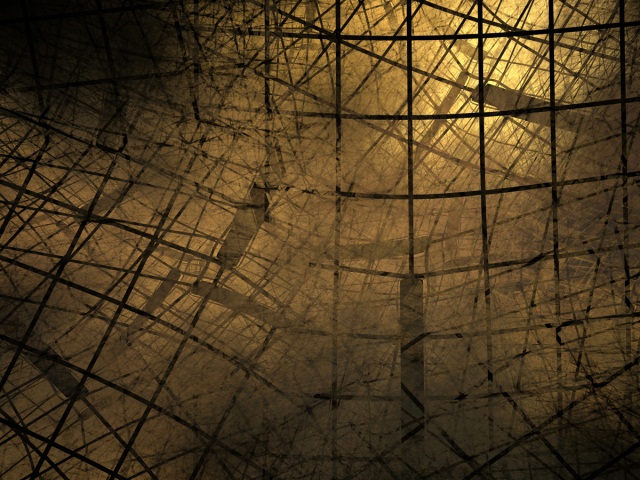This Poem: Deepika Arwind

Vein City
Raheem slurs lucid philosophy to me in his auto.
Nine p.m. and the heroin-trafficked, wind-flirted
Saturday night has party-goers swish by.
We move to savor one suspended moment after the other.
His eyes, my breasts, the rearview mirror, some talk.
Why have such big rallies? I agree. Traffic is stalled? Yes.
The pregnant woman had nowhere to pee.
What did you do?
He pauses; he grins. It begins.
The story. It has a kidney, children, medical mafia and hafta.
Something lofty like the systemic failure of faith
something light like the color of his eyes –
the knife, the piss, and meat he cannot eat
the spool of thread gets spun in directions unfamiliar.
His eyes, my breasts, the mirror –
mosques and markets wind out of sight
and at a dhobi ghat somewhere, something sounds,
a mouth, a mouth, a fraction of a man,
I smell ittar, I see his mother’s belly, I hear a scream
and incoherent beams of things we dream.
Are we there yet? I ask.
No we are still stuck in rally traffic, he says –
beating his hollow torso.
Savithri of the Burns Ward
Four a.m. is the worst.
The cold fluid of an amniotic morning.
No wind dare blow, no
dew-like pleasantries for
eons around the window sill.
Only her wide eye –
that ticks like rage, like rage.
The rage of 24 women, charred,
who lie still, so still
that tides must swallow cities,
trains betray tracks,
planets conspire
to collide.
I Swallow the City
I don’t spit – even though I have swum through
beetel-juiced pavements, thumped
the ferment-stung chew with my pale palms, I don’t spit.
I hoot like a madman at dusk with traffic lights in my eyes,
and by seven I am afloat on the gridlock,
like a wispy zen cloud waiting for acid’s rain.
I swallow the city.
I let the traffic cop and the Bt evangelist meet –
sometimes in bed, I scream one’s name to the other.
I hear him blow a whistle, or him say I must accept
brinjal for breakfast. I lapse to laughter, and fling them
down the building – 18 floors and glass facades in shards.
Later, I drizzle like the earliest shower of the year.
I swallow the city.
Today’s a beggar’s dawn.
We smoke beedis under broken tarpaulin,
we play flute to a traffic-rashed morning,
bumped red at its edges.
On landfills, we are lone spectators to a
flock of flamingos, their magenta love –
they are gathered here for reasons beyond fathom.
After we have the drunk dark melting ice on garbage
and eaten our landfill, a dirty burp echoes in the sun.
For My Belligerently Nationalist Lover
You know how romantic flutes are – as romantic as cellos
under the moon. But I say flutes, because you would say
we barely have any cellos here. So I will hear the sound
of flutes against a landscape that resembles the skin of a sun-
dried tomato. I’m sorry, they are ‘not true of our cuisines’,
you will say with slight contempt. (And the price of each jar
will make you gasp.)
So flutes it is and landscape that resembles
the dry leather of kishmish, the arid look of a dull potato.
And I will read Neruda out to you but you will protest,
so I will read Ramanujan. And we will not drink wine – I guess
we will settle for one peg of anything desi, okay?
When you are drunk, staggering by my side,
and say in your protest-voice – Love knows no country, baby!
I will laugh and ruffle your hair and know
I am as brown as you are.
This Poem
like all poems about loss is about dislodging
the pink bullet from your heart.
It’s parting anyone, anything,
like when you part Siamese twins in a horrific,
beautiful sexual act, deeply engaged, entangled,
like the time I gave you my neck to wrangle, mangle,
like when you forgot to untangle, that is a lot like loss – you
know – loss makes me want to be with your ex,
and with her ex, and his, and hers, and hers, and his
and six hundred others and hold a candle light vigil –
I want to protest at Town Hall and see a police shootout;
see this great big rally teeter on two degrees of separation,
end in a bloodbath of sweaty groins and hot wax;
skin on skin and sin in bits rolling down stony steps,
so the news of loss plays on a sputtering film reel,
mapping the city’s veins, its minarets and wires,
buildings and pigeons, in cities big and small,
dilapidating at the rate of heartbeat, dhak dhak,
at the back of autos, dhak dhak behind trucks
sound okay please horn please, hum ek humare do;
loss has made me ponder the back of vehicles.
And made me guzzle ghazals
and sitcom after sitcom.
No time for lightness,
all the time for lightness.
I hear an ektara. Loss
is a bit like this poem.
Excellent creativity. Commendable talent. Appreciate it. Thanks for contributing in your own way/style. Cheers!